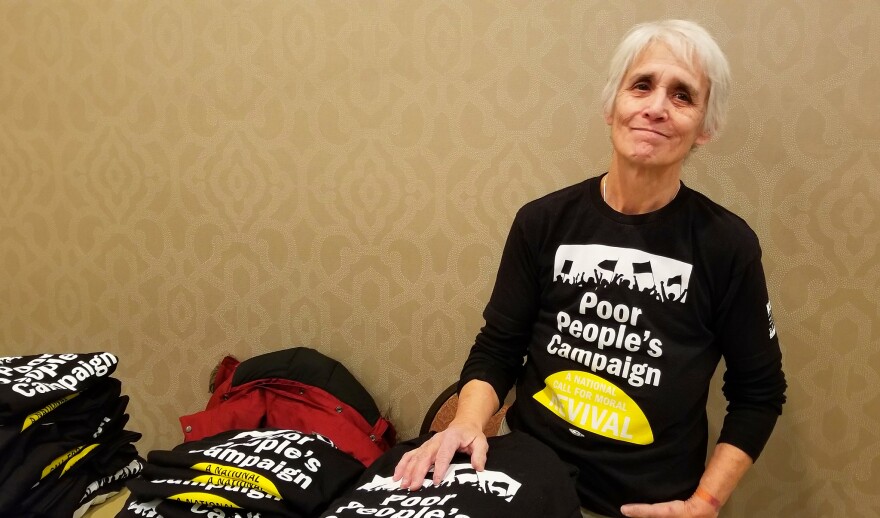Among the nearly 700 people attending the 38th annual Martin Luther King, Jr. celebration in Portland Monday night were supporters of the Maine chapter of the Poor People's Campaign: A National Call for Moral Revival. Inspired by Dr. Martin Luther King 50 years after he called for a "non-violent army of the poor" to demand economic and racial justice, activists across the country are following in King's footsteps.
In Maine, campaign organizers Marcella Mackinnon and Heather Zimmerman told the crowd theirs is a long-term movement to deepen the leadership of the most affected by affecting policies and elections. And they recited a list of examples of inequality specific to the state.
"Over 40 percent of black residents in Maine live in poverty. That is one of the highest levels of black poverty in the country,” Mackinnon said.
“Even with Maine's new, increased minimum wage of $11 an hour, it would take approximately 68 hours a week to afford a two-bedroom apartment,” Zimmerman added.
“One-fourth of working Mainers still live in or near poverty," said Mackinnon.
And, they say, black residents are incarcerated at six times the rate of white residents.
The campaign includes a list of demands, among them fair and quality housing for all, the right for all workers to form and join unions, access to paid sick days and family medical leave, access to clean water, and a clear and just immigration system.
Diane Dicranian, of Bath, says the Poor People's Campaign in Maine will be holding listening sessions in at least three rural communities to hear from people most affected by poverty.
She says she doesn't think much progress has been made since Dr. King shared his dream of racial and economic equality five decades ago.
"I don't think we've come far at all. I think we've gone backwards,” she says. “I think there are more people hungry today. There is more discrimination today and there are certainly less opportunities than Dr. King had hoped for then."



